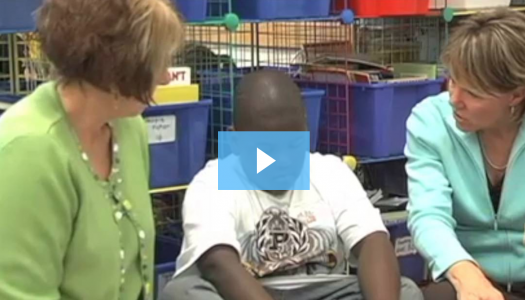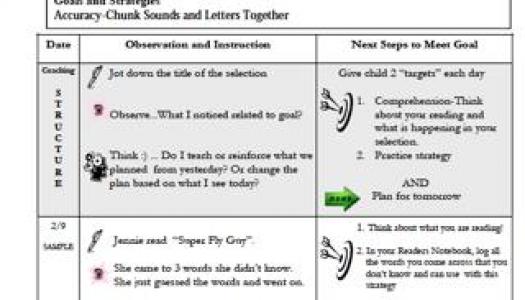Identifying Student Strengths
Join Our Community
Access this resource now. Get up to three resources every month for free.
Choose from thousands of articles, lessons, guides, videos, and printables.
After assessing a child, we begin discussing what we learned by saying to them, "Tell me about yourself as a reader." Students who have never been asked to do this may look at us quizzically and say, "I like to read" or "I don't like to read" and little else. At that point, we usually say, "Let me tell you what I noticed about you as a reader." As students grow accustomed to our leading with this particular request, they open up more easily and tell us valuable information.
Our comment, "Let me tell you what I noticed about you as a reader" is followed by one or two strengths we want to point out and share. This helps in building the relationship, creating confidence, and helping students to open up. Sometimes strengths are easily noted and shared with students, and other times we resort to behavior or even concepts of print to highlight strengths.
If they exhibit few skills because they are beginning readers, we can always comment on their reading behaviors, such as being attentive when listening to stories. With children who have more skills or experience, we might say, "I notice that you can read all the words correctly" to highlight their accuracy, or "I notice you read accurately and with expression" to point out their fluency. Then, in front of the child, we open that child's section in the conferring notebook and note their strengths.
| Possible Strengths |
|---|
| You stayed in one spot and got started right away. (behavior) |
| You read all the words correctly. (accuracy) |
| When you came to a word you didn't know, you said the word slowly and listened for the individual sounds the letters or letter combinations represent. (accuracy) |
| You read smoothly with expression. (fluency) |
| When asked questions about the story, you were able to summarize what took place. (comprehension) |
| This book was a good fit for you. (fluency) |
| You used punctuation to help with your expression. (fluency) |
| You made note of interesting words on your word collector. (vocabulary) |
| You ignored the distraction of students coming in the classroom and continued reading. (behavior) |







